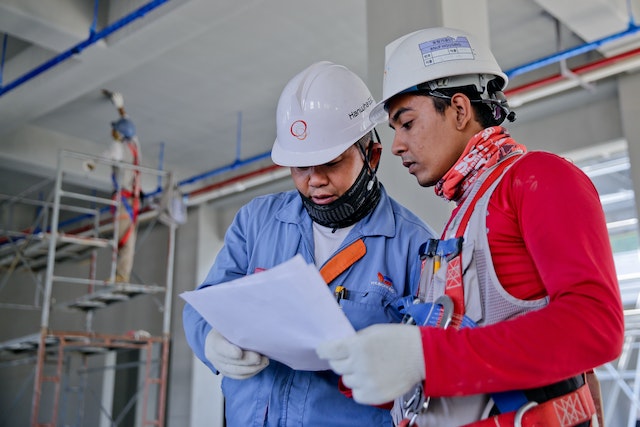
Advancements in technology improve much of our day to day lives. Many different industries have been able to improve their understanding of their customers, produce their products more efficiently, and make them even better than they ever could before with technological growth.
The construction industry has benefited and will continue to improve with further development of technology, especially technology platforms designed specifically for our industry. Here are just a few ways why the construction industry benefits and continues to rely on technological advancement:
Technology Increases Safety:
On average,over 1,000 construction workers die per year in the United States from construction related work accidents despite safety inspections and regulations. While this is a serious number, construction related deaths were twice as common before the 21st century, with technological advancements continuing to reduce the risk of death at construction sites.
Tracking technology is used to monitor equipment, advising overseers to replace and repair long before equipment malfunctions can injure someone. Improved safety equipment is better able to protect workers from burns, falling, and from other injuries and workplace hazards. Sensors are even able to detect gasses and other volatile conditions, warning workers of dangers they can’t see.
Improving construction technology is absolutely vital for the continued health and safety of workers in our industry.
Technology Increases Productivity:
The way we construct homes, offices, and other projects has changed very little over the years as now you can learn more about financing options. Despite changes in aesthetics, most buildings are still made up a roof, a foundation, and four walls after all. However, there have been multiple improvements in regards to the efficiency and productivity of construction work.
Some of the productivity improvements include the following:
- Employee management software. Save time on payroll, scheduling, and handling employee needs with the aid of software platforms built for managing your workers.
- Global data transmission. Project managers can be anywhere in the world and track the work being done through web cameras and internet communication.
- Machine learning projections. Machine learning and AI systems can generate material lists, predict costs, and estimate profits ahead of time for major construction projects.
- Automated prefab construction. Reduce the workers you need with automated machines building prefab and modular parts shipped directly to project sites.
Technology Increases Profits:
Technology is instrumental in saving and making money in the construction business. While new construction technologies often require a large initial investment, the benefits often far outweigh the costs, especially when factoring the safety and productivity costs that come with it.
Many construction workers lose or damage tools over the course of a job, but with monitors you can track them down when they go missing or take them in for minor repairs before a major repair is needed. Fuel is always a major expense, but with modern software suggestions you can maximize fuel efficiency and make sure you never use more than you need to.
Technology is also vital when it comes to protecting construction sites as well. With automated alarms, cameras, and other modern platforms, you’ll greatly reduce the risk of non-construction workers stealing or damaging the work site when you’re away.
Improve Safety, Productivity, and Profits with ZenTek Consultants:
While there are many great software and technology platforms out there that will improve your construction firm, finding the right options for your company can be tough. We recommend you take away the guesswork by reaching out to ZenTek Consultants.
ZenTek Consultants offer many different options to help improve your construction efforts. At ZenTek, you can look forward to online training, software services, and other great platforms that will help you take advantage of the best and latest technologies built for the construction industry.